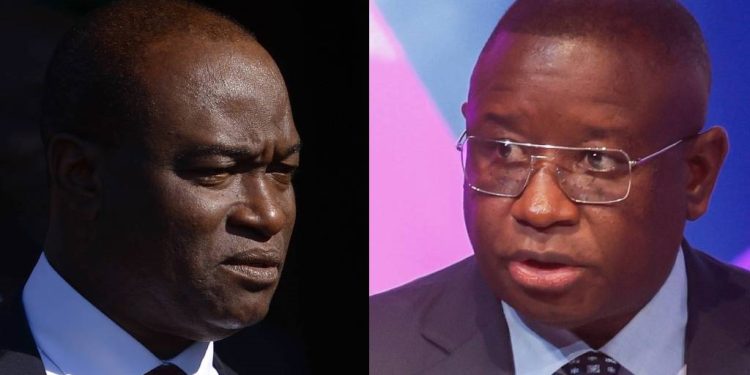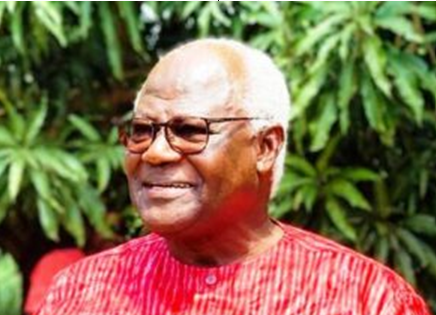For decades, the political landscape of Sierra Leone has been dominated by two major traditional parties, the All People’s Congress (APC) and the Sierra Leone People’s Party (SLPP). However, under the SLPP’s rule, particularly in recent years, corruption and self-interest have reached unprecedented levels, casting a shadow over the nation’s prospects for progress. Although both parties have, at times, displayed governance issues, the current SLPP government is widely criticized for prioritizing political survival and personal gain over genuine national interests, driving Sierra Leone deeper into poverty, stagnation, and disillusionment.
The SLPP once presented itself as a party of progress, equity, and reform, but these ideals have been increasingly overshadowed by the party’s fixation on consolidating power. Each election cycle, SLPP leaders promise transformative change, yet actions continually fall short. Instead of fostering a political culture built on integrity and public service, the SLPP has cultivated a structure rife with favoritism and control, suppressing dissenting voices within the party to protect its inner circle. This approach has enabled small elite to tighten their grips on power, leaving the average Sierra Leonean without meaningful representation or participation in the political process.
The SLPP’s agenda has shifted from serving the people to serving itself, with loyalty to party leadership valued above competence or public service. Key government posts are filled based on allegiance rather than ability, creating a system where citizens’ needs are sidelined, and qualified professionals are marginalized. This monopolization of power fosters inefficiency, cronyism, and unchecked corruption—hallmarks of an administration that prioritizes personal gain over national welfare.
One of the most glaring issues in the SLPP’s rule is their economic policies, which benefit only a select few at the expense of national development. The current administration, despite its grand promises, has failed to provide substantial relief to ordinary Sierra Leoneans. Instead, they have enabled a system of economic exploitation, where the nation’s wealth is siphoned by party elites and foreign allies, leaving little for infrastructure, social services, or poverty alleviation.
Sierra Leone’s critical industries, especially mining, are plagued by favoritism and corruption. Under the SLPP’s watch, lucrative contracts are awarded to party loyalists and foreign corporations, often without transparency or fair competition. Rather than using these industries as engines for sustainable growth, the administration has treated them as personal cash reserves, leading to environmental degradation, unfulfilled job promises, and a growing wealth gap. Misappropriated funds and inflated budgets are common occurrences, fueling a cycle of economic decay that affects all Sierra Leoneans while enriching a few.
Two of the areas where the SLPP’s corruption and inefficiency are most evident are in education and healthcare. The much-publicized Free Quality Education initiative, introduced by President Bio, has been widely criticized for failing to deliver on its promises. While education was marketed as a priority, the reality is a system plagued by insufficient funding, overcrowded classrooms, and underqualified teachers. Instead of genuinely improving education, the initiative appears to have been a political maneuver aimed at public appeasement rather than an authentic commitment to future generations.
Similarly, healthcare under the SLPP has deteriorated, with hospitals lacking basic supplies, medical staff in short supply, and funding often redirected to less critical areas. During the COVID-19 pandemic, these deficiencies were starkly highlighted, as the government struggled to provide adequate healthcare to its citizens. These failures are not due to lack of resources but rather to the misallocation of funds—often towards party projects or lining the pockets of those in power. The SLPP’s inability to address even the most basic healthcare needs underscores the extent of their disregard for the well-being of Sierra Leoneans.
Beyond economic and social failures, the SLPP has been accused of using ethnic divisions to maintain political dominance, a strategy that undermines national unity. Instead of fostering an inclusive political environment, the SLPP has appealed to specific ethnic groups to secure loyalty, thereby intensifying divisions within Sierra Leone. By exploiting ethnic allegiances, the administration ensures electoral support but alienates a significant portion of the population, eroding social cohesion and fostering resentment.
This divisive strategy allows the SLPP to fortify its power base while alienating those who feel disenfranchised by a government that selectively favors certain groups. The lack of inclusivity not only stifles democratic representation but also obstructs national unity, as citizens become increasingly polarized along political and ethnic lines. Sierra Leone’s future stability depends on unity, yet the SLPP’s divisive tactics create long-term obstacles to cohesion and shared national identity.
Corruption within the SLPP administration is further intensified by the near-total absence of accountability mechanisms. Despite a series of scandals and clear evidence of mismanagement, there has been little effort to hold officials accountable. Corruption is pervasive, and those in power operate with impunity, assured that their party allegiance will protect them from repercussions.
Efforts to combat corruption have been minimal, with anti-corruption measures often used as tools to suppress political opposition rather than address wrongdoing within the party. While the SLPP claims to prioritize transparency, its actions have eroded public trust in government institutions, as citizens witness a widening gulf between the administration’s rhetoric and reality. This lack of integrity not only damages the party’s credibility but also undermines faith in Sierra Leone’s entire political system.
The implications of SLPP’s corrupt governance are far-reaching, affecting every facet of Sierra Leonean society. In prioritizing personal gain over public welfare, the administration has failed to address the country’s urgent issues, such as poverty, inadequate infrastructure, and widespread unemployment. The consequence is a society that remains stagnant, as potential avenues for progress are obstructed by political greed.
With each passing year, Sierra Leone falls further behind its regional peers in terms of development, as resources that could support growth are squandered. Citizens, particularly the youth, are increasingly disillusioned with the SLPP’s empty promises and self-serving policies. The growing frustration is evident, as young Sierra Leoneans, who make up a significant portion of the population, look for alternatives that prioritize transparency, accountability, and social progress.
For Sierra Leone to move beyond the barriers imposed by SLPP’s governance, a fundamental change is needed in political priorities and practices. The country’s path forward must focus on inclusive governance that prioritizes the needs of the people rather than the interests of an elite few. Citizens must demand accountability, push for political reforms, and advocate for leaders who are genuinely committed to national development and public service.
The solution lies in building a new political landscape that transcends traditional loyalties and emphasizes integrity, transparency, and equality. Civic engagement, public accountability, and independent political movements that prioritize the common good can help create a system that better reflects the aspirations of Sierra Leoneans. As the nation moves toward future elections, it is crucial for citizens to demand that leaders, whether within or outside the SLPP, demonstrate a genuine commitment to progress.
The SLPP’s choice is clear: either they can continue down the path of corruption and self-interest or embrace a new model of governance that truly serves Sierra Leoneans. The decisions made today will determine whether Sierra Leone rises to its potential or remains constrained by selfish governance. It is time for the SLPP to prove their dedication to the people, or risk irrelevance as citizens look toward a future free from the shackles of political corruption.










